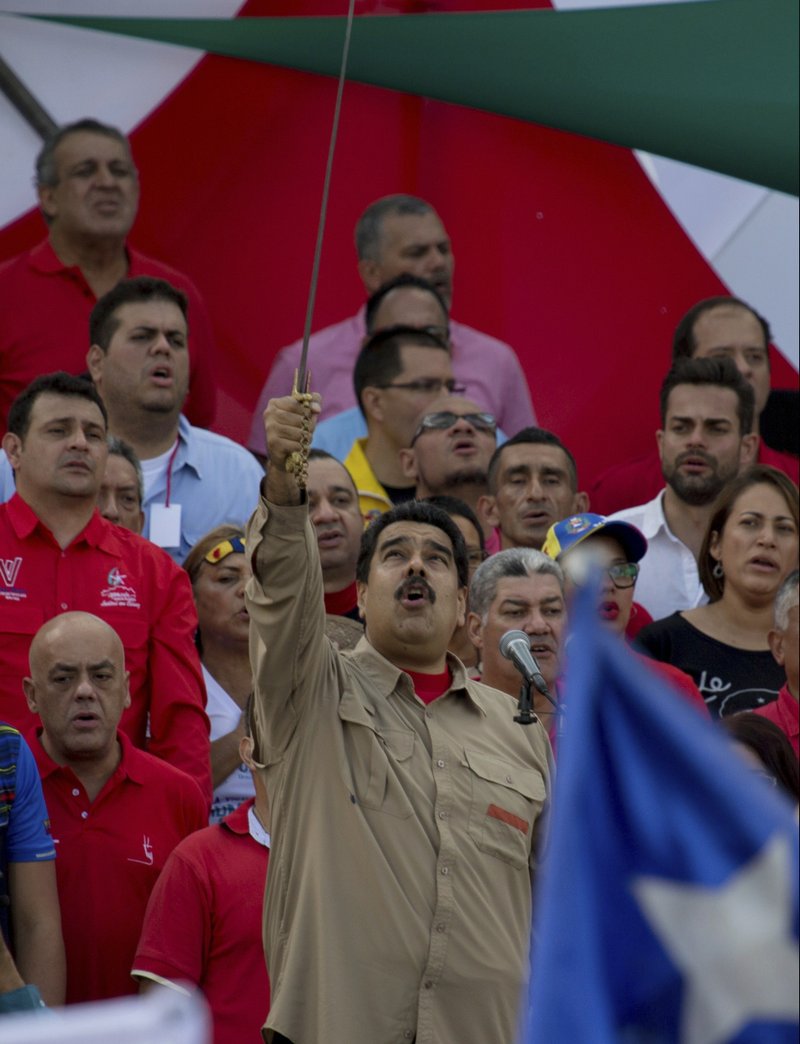CARACAS, Venezuela -- Venezuela's president said Sunday that the sudden decision to scrap the country's most-used currency bill was an economic triumph over the country's enemies even as the government sent troops and police to cities where riots and looting broke out over the measure.
In a national radio and television broadcast, Nicolas Maduro said his action had flooded the country's banks with currency deposited by Venezuelans racing to get rid of the paper bills while also devastating Colombian-border currency traders he blames for the bolivar's precipitous plunge in value against "the criminal dollar."
Last week's announcement annulling all 100-bolivar notes led to long lines at banks, a dramatic spurt in electronic payment and widespread fear by poorer people with no bank accounts and all their savings in the doomed bills, the value of which had already plunged to a few U.S. cents. Cash transactions such as buying food or gasoline became extremely difficult.
Maduro changed course late Saturday, announcing the 100-bolivar notes could be used until Jan. 2.
Before that announcement, riots and looting broke out in several cities. Maduro said Sunday that more than 300 people had been detained, including several members of opposition parties.
Maduro said the violence resulted from "a macabre" plan that he said was promoted by U.S. President Barack Obama to extract 100-bolivar notes from the country and stockpile them abroad. He said it was meant to be "the final blow of Obama, a final blow to create chaos, violence, division."
Maduro has also closed the border with Colombia and Brazil until Jan. 2, saying he is trying to thwart "mafias" who hoard bolivars. Critics have questioned why the United States or gangsters would choose to keep their wealth in the world's fastest-devaluing currency. A 100-bolivar note is worth about 2 cents, down from 25 cents five years ago.
Most economists blame the country's economic woes on price controls and falling prices for the country's oil exports, as well as heavy government spending and production-crippling policies that gave Venezuelans many 100-bolivar notes but not enough to buy with them.
Maduro said he'd had to extend the life of the old currency notes because saboteurs had prevented the arrival of three airplanes carrying newly printed, larger-denomination bills from abroad. He didn't give details about the plot.
Disturbances continued into Saturday evening in places such as Ciudad Bolivar, where officials banned motorcycles for 48 hours and restricted overnight car and pedestrian traffic. Bolivar state Gov. Francisco Rangel Gomez said 3,200 police were sent into the streets to ensure order and he said 262 people had been arrested in the state.
Rangel Gomez, a retired general, urged people to stay in their homes until the vandalism is quelled.
Eight hundred police and troops were sent to the town of El Callao, where Mayor Coromoto Lugo said a youth was killed, 25 businesses were looted and 40 people were injured in the disturbances.
In the southwestern town of La Fria, officials said city hall was burned during rioting on Saturday.
A Section on 12/19/2016
